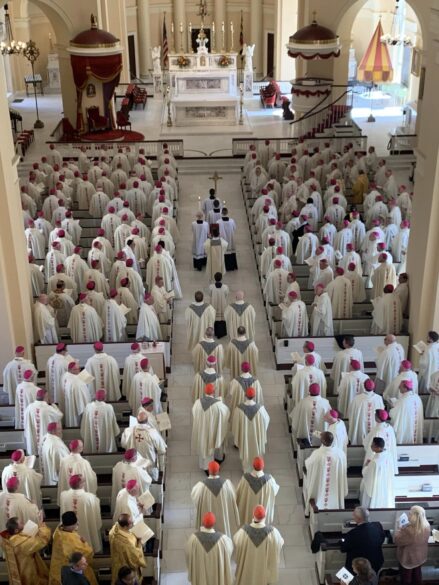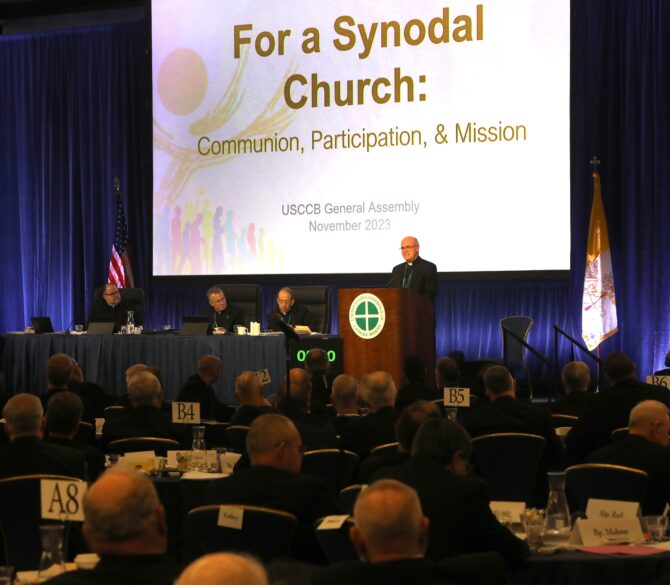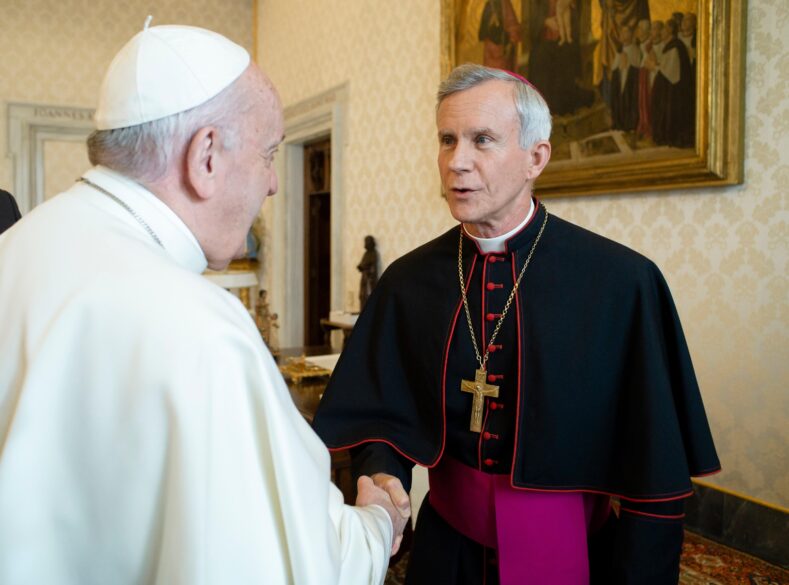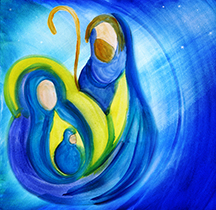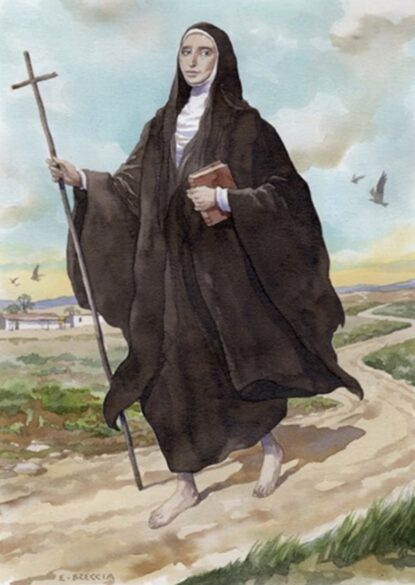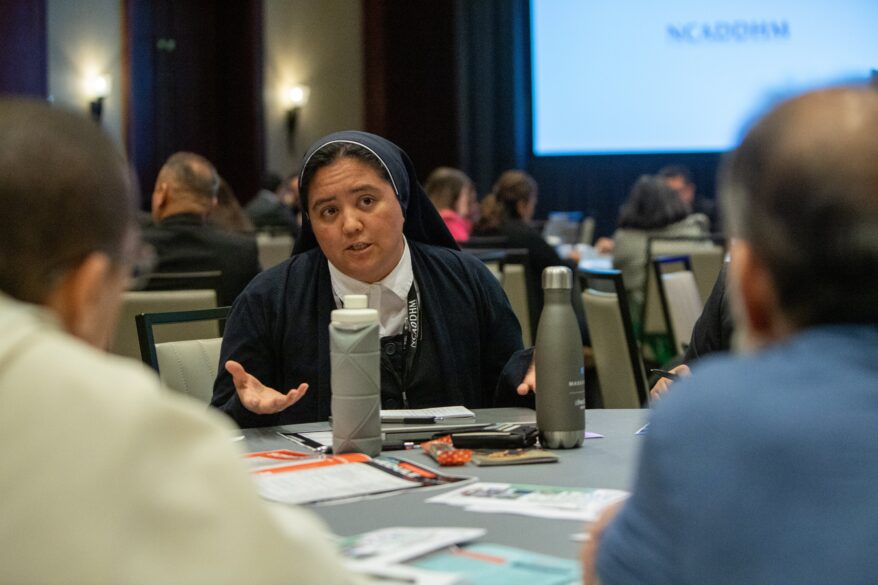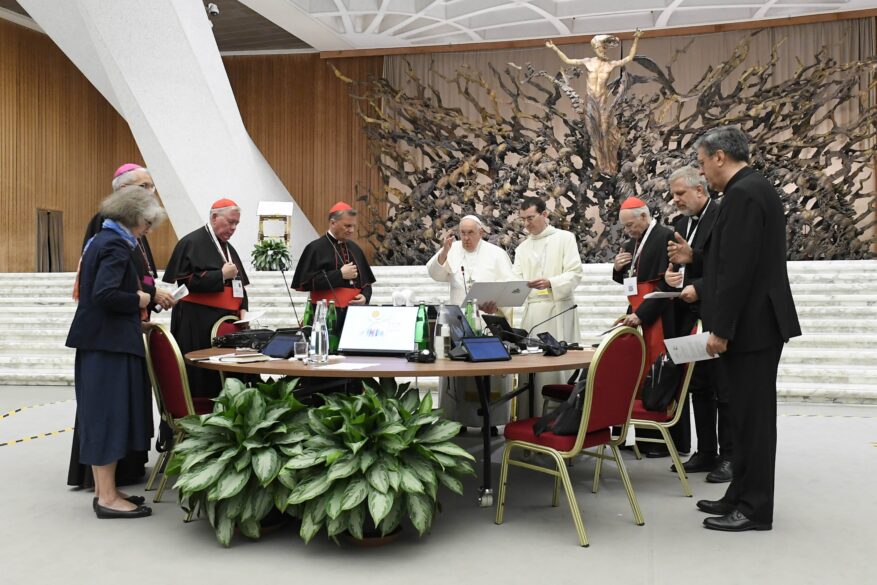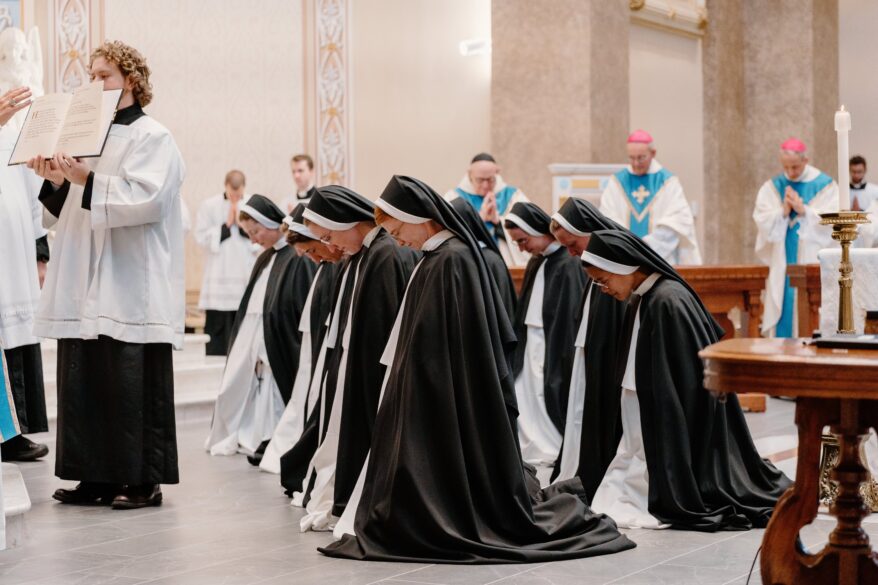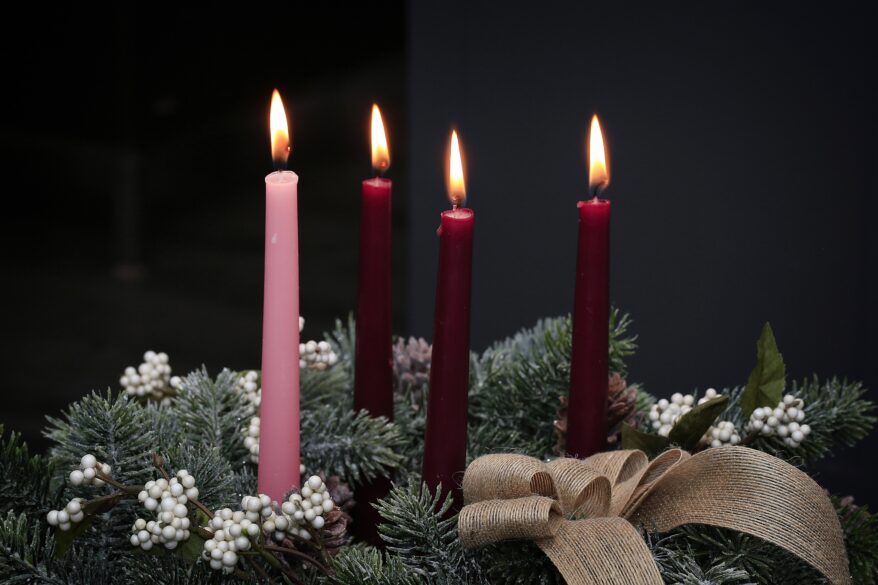NATION
HOBOKEN, N.J. (OSV News) – For the last decade, Msgr. Paul Bochicchio of St. Francis Church in Hoboken has been advising as a spiritual consultant on the upcoming film “Cabrini,” produced by Angel Studios about the life and ministry of St. Frances Xavier Cabrini, set to debut in theaters in March 2024. The movie, from the studio that produced “The Chosen” and “Sound of Freedom,” gives a dramatic look into the life of Mother Cabrini, as she is best known, and the uphill battle she faced ministering to the immigrant poor of New York. Msgr. Bochicchio, a priest of 52 years, has had a lifelong devotion to the first American saint. His great-grandmother knew Mother Cabrini personally, as they were both community leaders among New York Italian immigrants at the turn of the 20th century. Noting his grandmother had an enormous influence on his vocation to the priesthood, he found that he had a calling to work with Italian immigrants due to his background and had the perfect model in the patron saint of immigrants. As one of many technical advisers on the set of “Cabrini” but also as a Catholic priest, Msgr. Bochicchio accompanied the cast and crew on work retreats, where he would celebrate Mass every day and give spiritual reflections on the saint. As a script adviser, he would receive every revision and be asked to comment on its accuracy.
LOUISVILLE, Ky. (OSV News) – The late James Madison Smith Sr. and Catherine “Kitty” Smith, formerly enslaved Catholics, are being recognized as agents of the Underground Railroad. The Smiths, a freed married couple, are buried in St. Louis Cemetery in Louisville in a once-segregated section of the cemetery. The U.S. Department of the Interior’s National Park Service announced in late September that the Smiths’ burial site would be included in the National Underground Railroad Network to Freedom. Its mission is to “honor, preserve and promote the history of resistance to enslavement through escape and flight,” according to its website. During the 1850s, worsening conditions for Black people in the South led the Smiths to move from Louisville to Jennings County, Indiana. Their farm – located about 29 miles from the Ohio River – became a shelter for enslaved people fleeing for freedom, said Deacon Ned Berghausen, who led the effort to recognize the Smiths. He serves at St. Agnes Church. Years earlier, James Madison Smith had purchased his freedom and that of Catherine Smith and they were married in 1837 at St. Louis Church, now the site of the Cathedral of the Assumption. Though they left Louisville, the couple remained connected to the city’s Black Catholic community.
VATICAN
VATICAN CITY (CNS) – The Vatican announced Pope Francis’ Christmas liturgy schedule Nov. 28. It includes: – Dec. 24 at 7:30 p.m., the pope will celebrate the Mass of the Nativity of the Lord in St. Peter’s Basilica. – Dec. 25 at noon, Pope Francis gives his message and blessing “urbi et orbi” (to the city and the world) from the central balcony of St. Peter’s Basilica. – Dec. 31 at 5 p.m. in St. Peter’s Basilica, the pope presides over evening prayer and the chanting of the “Te Deum” in thanksgiving to God for the year that is ending. – Jan. 1 at 10 a.m. in the basilica, the pope celebrates Mass for the feast of Mary, Mother of God, and World Peace Day. – Jan. 6 at 10 a.m. in St. Peter’s, Pope Francis celebrates Mass for the feast of the Epiphany. – Jan. 7 at 9:30 a.m. in the Sistine Chapel, the pope presides over a Mass for the feast of the Baptism of the Lord and baptizes several infants.
TURIN, Italy (OSV News) – On Oct. 30, three days after Pope Francis lifted the statute of limitations and opened the path for a church trial and possible removal from the priesthood for former Jesuit and mosaic artist Father Marko Rupnik, a woman previously known as Anna gave the world her real name, revealing it in the Italian daily newspaper Domani. Emerging as Gloria Branciani, she openly wanted to protest church policies that put the alleged victims in more pain instead of healing. Branciani alerted church authorities about Father Rupnik’s behavior years ago, but it was a losing battle, she told OSV News. In a first-ever interview by an alleged victim of Father Rupnik, published by Domani Dec. 18, 2022, she spoke about a “descent into hell” she experienced for nine years and recalled how “Father Marko at first slowly and gently infiltrated my psychological and spiritual world by appealing to my uncertainties and frailties while using my relationship with God to push me to have sexual experiences with him.” Father Rupnik was expelled from the Jesuit order June 9 because of his “stubborn refusal to observe the vow of obedience.” The artist had been accused by several women of sexual, spiritual and psychological abuses that according to media reports over a 30-year period. Branciani said she hopes that in the canonical process recently reopened against Father Rupnik will lead to the truth being recognized.
WORLD
PARIS (OSV News) – If classical literature characters could become saints, France has a perfect example. The real bishop behind Victor Hugo’s famous Les Misérables character is likely to be beatified. The French bishops, gathered in Lourdes Nov. 3-8 for their plenary assembly, voted in favor of opening the diocesan process for his beatification. Bishop Bienvenu de Miollis (1753-1843) was the Bishop of Digne from 1805 to 1838 and an inspiration for Victor Hugo’s character Bishop Myriel in the novel Les Misérables, published in 1862. Bishop Myriel was close to the poor and lived a sober life. He took in the main character, Jean Valjean, who had just been released from the penal colony. The next day, Valjean was recaptured by the police for stealing Bishop Myriel’s silverware. But the prelate pretended it was a gift, and doing so, he saved Valjean from re-arrest. This gesture of mercy marked the beginning of a profound transformation of Valjean, which continued throughout the book. He remained attached to the memory of the bishop all his life. Renowned for his kindness, Bishop de Miollis was very attentive to the poor and beggars, whom he gathered together at the Hospice of Charity, and lived very modestly himself. In 1806, Bishop de Miollis took in a freed convict by the name of Pierre Maurin, whom no-one wanted to take in, and looked for ways to help him regain his dignity – a story that inspired the author of Les Misérables.
BUENOS AIRES (OSV News) – The Nicaraguan government has released a series of photos and videos of imprisoned Bishop Rolando Álvarez of Matagalpa – purportedly as proof of him receiving preferential treatment – that have sparked alarm over the prelate’s emaciated appearance and indignation over his continued incarceration in one of the country’s most notorious prisons. Nicaragua’s interior ministry published the photos and videos from 10 separate occasions between March 25, 2023, and Nov. 2, 2023, as part of a 20-page press release issued Nov. 28, according to independent Nicaraguan news organization Confidencial. The photos and videos show Bishop Álvarez greeting his brother and sister during prison visits, watching TV in an area full of snacks, and receiving medical attention. “As can be seen in the video and photographs, the conditions of confinement are preferential and the regime of medical consultations, family visits, referral and receipt of packages is strictly complied with, contrary to what slanderous campaigns would have us believe,” the ministry said in its statement. The bishop, 57, appeared emaciated in the photos, according to ecclesial colleagues on social media. An outspoken prelate, who routinely denounced the abuses of Nicaragua’s regime, Bishop Álvarez was convicted Feb. 10 on charges of conspiracy and spreading false information and sentenced to 26 years in prison after a closed trial in which he was denied a lawyer of his choosing.
MARAWI, Philippines (OSV News) – A deadly bomb that exploded during a Mass Dec. 3 killed at least four people and injured dozens at a university in a predominantly Muslim city in southern Philippines. Media reports that the explosion caused panic among dozens of students and teachers in a gymnasium, where Mass was taking place, at Mindanao State University in Marawi, capital of Lanao del Sur province. The explosion took place at around 7 a.m. local time. Islamic State militants claimed responsibility for the deadly blast, according to Reuters and The New York Times. Nearly 80% of the Philippines’ population of 114.6 million people is Catholic. About 6% of the population identifies as Muslim. After praying the Angelus, Pope Francis assured the victims of his prayers. A telegram, addressed to Bishop Edwin de la Peña of Marawi, assured the people of the Holy Father’s spiritual closeness amid this tragedy, and that he commended the souls of those who died to God’s mercy and prayed for “the divine gifts of healing and consolation upon the injured and bereaved.”

